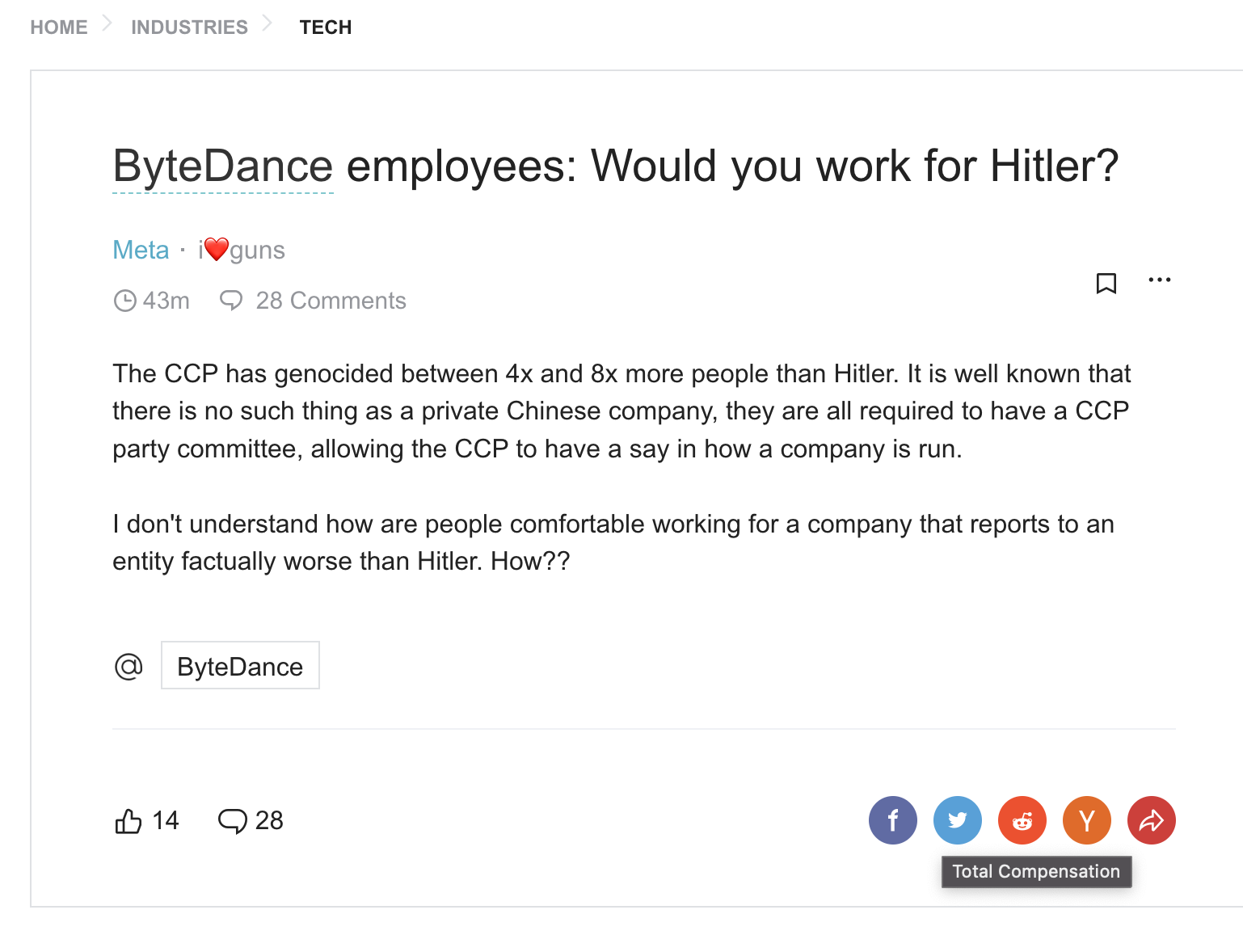view the rest of the comments
the_dunk_tank
It's the dunk tank.
This is where you come to post big-brained hot takes by chuds, libs, or even fellow leftists, and tear them to itty-bitty pieces with precision dunkstrikes.
Rule 1: All posts must include links to the subject matter, and no identifying information should be redacted.
Rule 2: If your source is a reactionary website, please use archive.is instead of linking directly.
Rule 3: No sectarianism.
Rule 4: TERF/SWERFs Not Welcome
Rule 5: No ableism of any kind (that includes stuff like libt*rd)
Rule 6: Do not post fellow hexbears.
Rule 7: Do not individually target other instances' admins or moderators.
Rule 8: The subject of a post cannot be low hanging fruit, that is comments/posts made by a private person that have low amount of upvotes/likes/views. Comments/Posts made on other instances that are accessible from hexbear are an exception to this. Posts that do not meet this requirement can be posted to !shitreactionariessay@lemmygrad.ml
Rule 9: if you post ironic rage bait im going to make a personal visit to your house to make sure you never make this mistake again


I wasn't flexing at all. I was merely trying to point out that books can also be addictive. There is this weird idea that social media is somehow more addictive than other activities people do. I am trying to highlight that this is not always the case.
There is loads of misinformation in books too. There are also tiktoks made by actual scientists and experts just like there are books made by them. There is some serious bias here.
The way information is presented is more important than the information itself. When you read a book, you can slowly consider the idea, you are actively and consciously taking it in. Tik Toks are the most passive form of consumption, with what you will see predominantly controlled by an algorithm you don't get to see. Things are suddenly and often bombastically thrust into your face, and explanations are condensed into mere seconds. People don't often question tik toks information as they should.
Anyway, your experience is not relevant to people that have a hard time reading, I don[t see why you piped up. Social media is definitely more addictive because people interact with it in the way of gamblers and alcoholics on a massive scale.
People tend to treat books as an authoritative source. Few people would treat TikTok as an authoritative source. In this way books can be more manipulative a form of misinformation.
I would argue it could be a means of democratizing information for people who don't have strong reading ability or don't have a long enough attention span.
I have seen people become obsessed with researching things much like people becoming obsessed with social media. I have even had this happen to me. Any novel source of information or stimuli can become addictive. To compare this to something physically addictive like alcohol is ludicrous though. You can't get withdrawal symptoms like seizures from not watching TikTok.